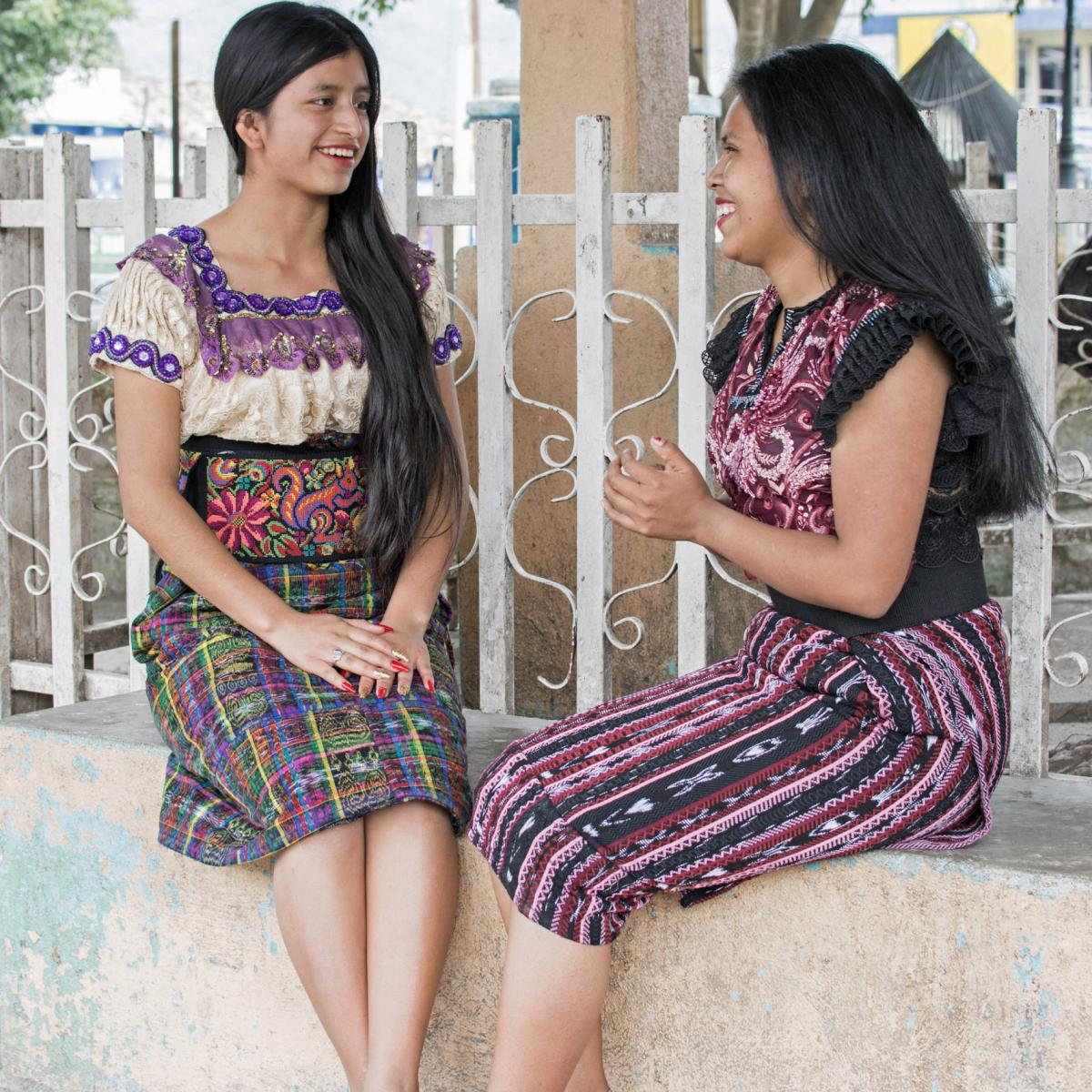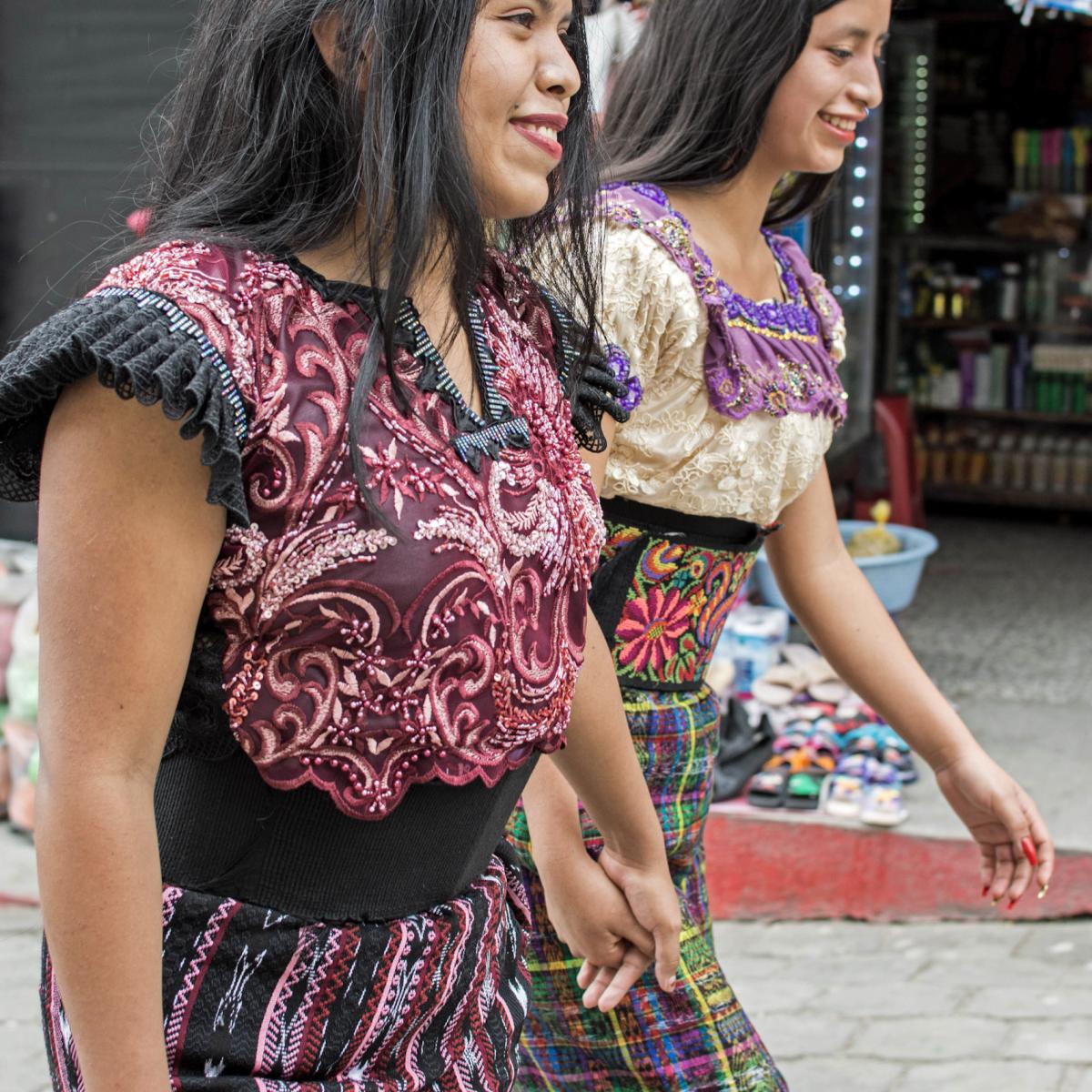Live Your Dreams
How USAID supported a young woman’s decision to stay in Guatemala
Marta is a young Mayan K’iche’ woman who dreams of opening a business in her hometown of San Andrés Sajcabajá, El Quiché. She worked hard and graduated high school last year, with a scholarship to continue her studies in university, where she is currently working towards her degree in business administration. Given her current success, it is surprising that she was contemplating migrating to the United States, believing it was her best chance to succeed. Three of her siblings have already migrated to the United States and she expected that she would do the same. “Fathers leave, and then the children go because they want to support their mothers and younger siblings,” shared Marta, speaking about why so many Guatemalans irregularly migrate.
Irregular migration is a reality in San Andrés Sajcabajá and in much of Guatemala’s Western Highlands. Poverty, inequality, weak institutions, and a lack of educational and economic opportunities contribute to high levels of irregular migration. Out of the 30 students she went to elementary school with, only five remain in San Andrés Sajcabajá. Furthermore, marginalization of indigenous peoples has weakened the social fabric in these communities giving rise to social conflict and violence. “One reason that youth migrate is that they want to leave the violence. Sometimes mothers will take their children and leave the country so that they don’t have to continue in situations of violence,” explained Marta.


USAID, through its Peace Building project, implemented by Creative Associates, is committed to reducing social conflict and violence, while strengthening social cohesion at the community and municipal levels in the Western Highlands of Guatemala. Through a community-based development approach, USAID addresses the root causes of conflict across four thematic areas: youth, gender, and families; governance; land rights; and natural resources, believing that equitable and sustainable responses to these challenges must be built upon the priorities and experiences of the people who live them every day.
For Marta this journey began In July 2021, when she started participating in a USAID supported network of youth leaders called Youth Voices for Peace. The network provides training on communication skills, conflict analysis, irregular migration, and use of information communication technologies, giving them the opportunity to have a voice and to advocate for their own development and peacebuilding priorities in their communities. This has changed her outlook on her community and irregular migration. “I didn't plan to continue studying, I planned to go to the U.S. after graduating from high school. I thought that the only way to get ahead was to migrate. Now I plan to study. I am not going to abandon my mother to go to another country,” wrote Marta in her Youth Voices for Peace article, shared as a motivational tool with other young people.
For Marta, the workshops on irregular migration and violence had a huge impact. “We learned about the risks, everything that can happen, and how people suffer. They travel and sometimes lose everything that they invested in the trip. So, I won’t go, I don’t want the same thing to happen to me." She committed to understanding and preventing domestic and gender-based violence. “There are types of violence that we think are normal but are in fact forms of violence,” said Marta about violence in her community. Through this community-based development approach, youth actively engage community members to end conflict, restore the social fabric, and build peace in their communities.
USAID is committed to reduce poverty and improve living conditions of Guatemalans to create a Guatemala in which economic and educational opportunities exist and irregular migration is not necessary in order to find opportunities. Marta is proud to be from San Andrés Sajcabajá. She loves the beautiful mountainous landscape of her home, her Mayan K’iche’ language, and culture. USAID supports young people like Marta through educational opportunities, employment, and civic engagement.
When asked what message she has for other Guatemalan youth, Marta says “Fight for your dreams and keep studying. I know it’s hard, but you have to work at it, there will be a reward in the future for what you do today.”
Credits:
Karen Chang



